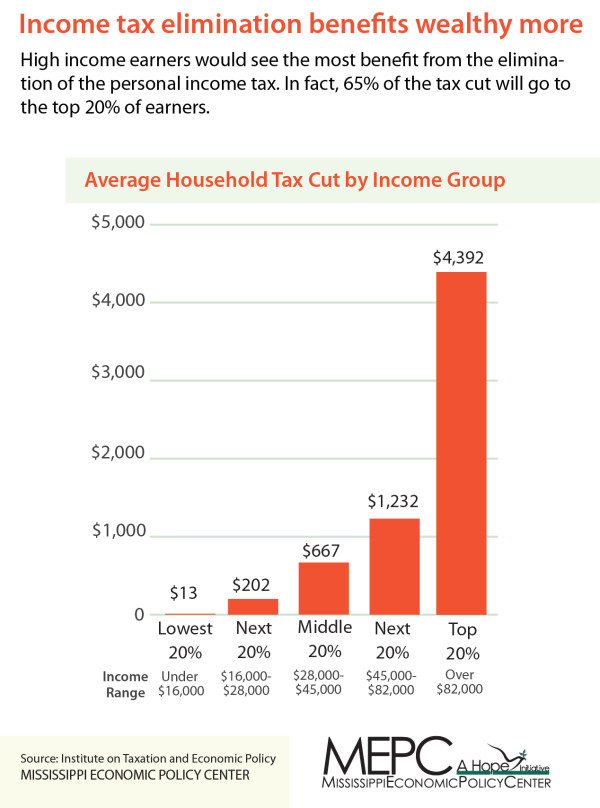Wealthy Mississippians would benefit most from Income Tax Elimination
February 25th, 2015
Eliminating the individual income tax would mean either a massive erosion of resources for education and other priorities or a tax shift from wealthy Mississippians to working families who are struggling to make ends meet.
- Data from the Institute on Taxation and Economic Policy show that high-income earners will see the most benefit from the elimination of the income tax. In fact, 65% of the tax cut will go to the top 20% of earners. Middle-income households will see an average tax cut of $667 under the plan while the top 1% of Mississippi households will see a cut of over $20,000 annually. Even with the initial 3% income tax bracket elimination, wealthy Mississippians will still benefit as the first $5,000 of everyone’s income is taxed in the first bracket.
- Individual income taxes are Mississippi’s second largest revenue source behind sales taxes, bringing in over $1.7 billion currently and making up almost one third of all general fund dollars that support schools, universities, mental health resources, public safety, and other key services.
- While the current proposal doesn’t include raising any offsetting taxes, eventually, in order to avoid drastic cuts to vital state services revenue would have to be raised through sales taxes and property taxes—taxes that hit lower and middle-income Mississippians especially hard. This would result in a tax shift from wealthy Mississippians to low- and middle-income working families who are struggling to make ends meet. Lower and middle-income working families already shoulder more of the tax burden than wealthy Mississippians.
- Most other states that do not have an income tax have special circumstances that allow them to collect revenue in other ways, like royalties from natural resources (as in Alaska, South Dakota, Texas and Wyoming) or revenue from major tourism industries (as in Florida and Nevada).
- Recent major income tax cuts in states like Kansas and North Carolina have resulted in budget disasters for those states without the quick economic gains that were promised when the cuts were made. They have cost more than expected and required mid-year budget cuts as growth hasn’t covered the cost of the cuts.







